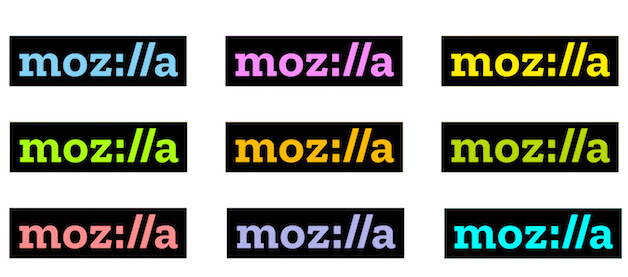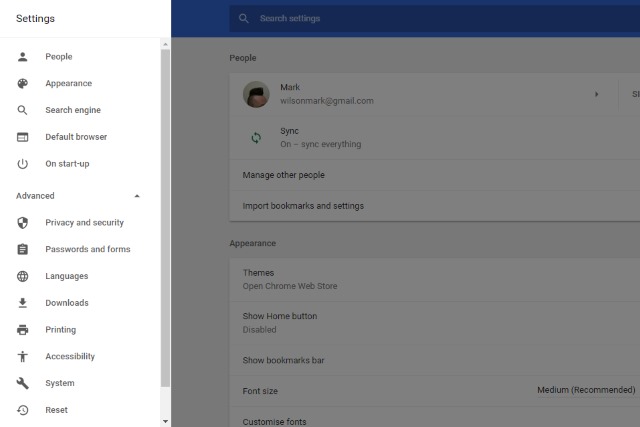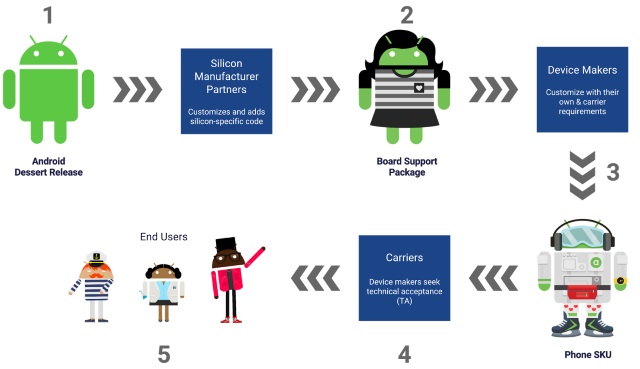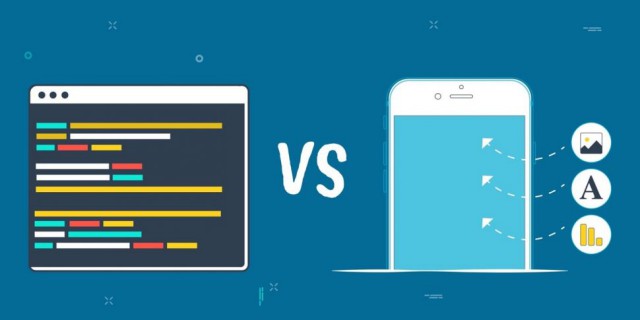
Mozilla's WebExtensions APIs allow for cross-browser extensions in Chrome, Opera, Firefox and Edge
Creating add-ons for multiple web browsers can be a nightmare for developers, but Mozilla wants to simplify things. By introducing WebExtensions APIs it is going to become much easier to make extensions that work in multiple web browsers with only minor changes.
Based on HTML, CSS, and JavaScript, the aim is to further standardize the APIs to make it even easier to share extensions between browsers. Mozilla is now pushing the technology in the hope that it will gain momentum and a growing following.

Google updates Developer Program Policies to fight incentivized app ratings, reviews and installs
Google has taken various steps over the years to try to combat dangerous apps in the Play Store, but this is far from being the only problem Google Play suffers from. There is also the ongoing issue of fake app reviews, incentivized activity, and other means of user manipulation.
Having already put in place some measures to crack down on such activities, Google is now updating its Developer Program Policies. It warns developers that they must "not attempt to manipulate the placement of any apps in the Store" and while banning the bribing of users is nothing new, here Google is aiming to provide additional clarity.

Material Design and new developer tools come to Chrome 59
Google has started to push out updates to the latest version of its web browser -- Chrome 59 for Windows, Linux and macOS. The update includes a number of important security fixes, but also sees the arrival of Google's Material Design on the desktop.
The Material look is one that will be very familiar to Android users, as well as anyone who uses Google's various online services. But Google is not quite ready to give its desktop browser a full makeover yet.

App developers want better feedback during coding and debugging
The ability of developers to do their jobs effectively is crucial to delivering reliable apps on time. App development company Perfecto has released the results of a new survey which asked developers how they focus their resources.
Among the findings are that 50 percent of user interface and user experience developers want better feedback during the coding and debugging process. Less than 25 percent say they actually get the timely feedback they need.

Data quality can impact software development
The quality of your company's data can have a major effect on the software deployment, new research has claimed.
According to a report by Delphix, poor data quality is to blame for roughly 15 percent of software defects, with higher-level data a major factor in faster application development.

Google lets developers exclude app support for rooted Android devices
Netflix is the first big name on Google Play to block Android devices that are rooted or have an unlocked bootloader from downloading its app. And it looks like it may not be the last, as now Google is officially giving all developers the option to do the same.
Developers on Google Play can enforce support exclusions based on a device's SafetyNet status, which is also what Netflix has used to restrict access. Out of the box, rooted devices or devices with an unlocked bootloader are supported, but developers have two options that they can choose to change that.

Making Android modular with Project Treble is Google's solution to its fragmentation and update problem
One of the problems with buying an Android smartphone is that there is usually no way to tell just how long it will be supported and how long you'll get Android updates. Unless you have a Google-branded device, it's hit-and-miss when, or indeed if, you'll receive an upgrade to the latest and greatest version of the mobile OS.
With the impending release of Android O, however, Google is trying out a solution to the problem which has led to endless fragmentation of the Android market. Going by the name of Project Treble, the solution sees Google introducing a modular base to Android. It's described as "the biggest change to the low-level system architecture of Android to date" and it should make it quicker, easier and cheaper for device-makers to roll out updates to handsets in future.

Android Nougat beta ends as Google prepares for imminent launch of Android O beta
Google is preparing to launch the Android O beta, and ahead of this the company has officially closed the Android Nougat beta program. We've already seen a developer preview of Android O, and a second release is due later this month.
But many Pixel and Nexus users are waiting for the Android O beta as the developer preview is not really intended for public consumption. While we're not really any closer to knowing for sure when the new beta program will begin, we're clearly nearing the time that Google will make an announcement.

UK businesses will spend £37bn on failing agile projects
Businesses in the UK will waste £37 billion on failed agile IT projects in the next 12 months, according to a new report from 6point6. The report is based on a poll of 300 UK and US CIOs. They were asked about their experiences with agile, and how its principles are being applied and executed.
More than half of CIOs (53 percent) see agile development as "discredited," and three quarters (75 percent) don’t even want to defend it any more. Seventy-three percent of CIOs think agile IT is its own industry now, and 50 percent consider it an "IT fad."

Watching users fail is key to building a good product
Just 40 hours of engineering work to go live with a state-of-the-art smartphone application? It’s only possible if you have the right framework and if you forget perfectionism in favor of real user feedback. At Spreadshirt, we want it to be easy for our users to buy, sell, create and share ideas on over 200 products on our ecommerce platform. Whether they use a desktop, tablet or smartphone, we want our users to have a great experience.
Back in 2014 we had created a t-shirt designer for tablets, to reflect the rise of the touch screen. It worked on smartphones, but that was a rare use case back then. This web app has been perfected through many iterations. But the mobile times changed. And exactly as we had already envisioned in 2016 smartphone traffic was up 22 percent and tablet traffic was down at less than 10 percent. We needed a new design tool to focus on the experience for our visitors from smartphones and find out what their specific needs and issues were. Watching users fail holds the greatest learnings when you develop complex applications, such as our smartphone t-shirt designer.

How to scale a microservices-based app
The promise of microservices is that you can divide and conquer the problem of a large application by breaking it down into its constituent services and what each one actually accomplishes. Each can be supported by an independent team. You get to the point where you can break the limits on productivity that Fred Brooks described in his book, The Mythical Man-month.
Aside from being able to throw more people at the problem and -- unlike what Brooks observed -- actually become more efficient once you get a microservices-based application into production, you can quickly start thinking about how to scale it. Think resiliency and high-availability. And you can easily determine what services don’t need scaling, or high availability.

Low code/no code development: Is it right for you?
Research carried out by Gartner, which predicted that the demand for mobile applications would outstrip the number of app developers by 2019, still looms large over the mobile app industry. The way CTOs and CIOs cope with the developer shortage could make or break their company’s technological expansion.
To face this shortage, IT departments have two options:

Should you buy or build your own software?
The build versus buy conundrum is without doubt a big decision for any company looking to adopt a new piece of software; each route has its own merits and both will be a costly exercise so it’s very important to make the right decision.
Although packaged software has now been used for decades there are still many systems developed in-house, perhaps increasingly so now that development skills are on the increase and coding is getting easier and even being taught to children in schools. In fact, IT analyst IDC recently predicted that most of 2017’s IT spending will go on "application development and deployment." However, by 2020 it expects software purchases to "edge out" app development costs as the largest spend. Clearly the balance is starting to shift with more skilled developers available to bolster in-house teams, but for the more complex applications such as the procurement arena, the jury is still out over the decision of whether to develop or buy.

How to optimize your app for the App Store and Google Play
The app-economy competition is fierce. Facebook owns four out of the five most downloaded apps worldwide, but startups are still leaping into the fight to claim new and old markets. For these startups, Facebook is often the least of their worries as, according to research from Gartner, we only actually use between six and ten apps on average and end up neglecting or deleting the rest. It’s tough for app developers to break through the noise, let alone get into that top ten.
So what does this mean for startups trying to break into the space? You have to put your best foot forward to make sure users will not only find your app, but keep it.

Mozilla ditches Aurora release channels for Firefox; new and beta code will hit users faster
Mozilla has announced plans to eliminate one of its release channels for not only Firefox but also Thunderbird and SeaMonkey. Starting today, the Aurora release channel will no longer be updated, and the Developer Edition of the web browser will be based on the Beta build.
The change is part of a drive to streamline the release process, and to make sure that stable new features make their way out to not only developers, but also normal users faster than before. Mozilla says: "Developer Edition users will maintain their Developer Edition themes, tools, and preferences, will keep their existing profile, and should not experience any disruption."
